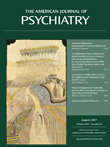Life is with Others: Selected Writings on Child Psychiatry
This tribute volume sampling the work of Donald Cohen, with commentaries by his closest colleagues and friends, takes its name from a paraphrase of a volume about Shtetl life among European Jews: Life is with People, by Zborowski and Herzog. The title is apt, given Donald’s close relationship to the Jewish community and his intellectual and academic ties to Israel and Israeli scientists. His untimely death warrants notice because in many ways he did not have the opportunity to complete his lifelong work on behalf of children, ranging in interests from the molecular to the intrapsychic and the humane understanding of communities beset by stress and trauma. The sampling of his writing reveals Cohen as a holistic and comprehensive thinker who mastered so many discrete fields and actually worked closely with a wide ranging group of colleagues with more specialized interest, even as he administered a medical center department and spawned a generation of new investigators.
This devotion to diversity as well as rigor shows in his arguments covering psychoanalytic issues as well as the range of empirical sciences that he employed to pursue studies of Tourette’s syndrome, autism, and attention deficit hyperactivity disorder. He also collaborated with many to study stress and trauma in Israel and elsewhere and penetrated the humane issues of our times, including maltreatment of children and social policy at the grass roots in urban slums. Thus, this rather thin volume includes only a smattering of his voluminous writing. Many are coauthored with his colleagues at the Child Study Center. The editors have selected some writing on autism, play and imagination, aggression and catastrophe, and research and mentorship. None of the selections are from the greater corpus of more technical and systematic studies because his mentees and colleagues wanted to stress the humane man and mentor rather than the scientist. Nonetheless, the tributes to Donald that are included in the volume are written by some who are more devoted to the science as well as those who span more humanistic and psychoanalytic communities. They are worth reading because they describe how an inquiring mind can progress with zeal toward new knowledge and still keep people in mind while including nurturance for new investigators.
Donald’s leadership of the Yale Child Study Center since 1983 was not simply continuity from his eminent predecessor, Al Solnit, but a unique invention that became a model for all in child and adolescent psychiatry. It was and remains a premier training site for residents and fellows in child and adolescent psychiatry. It is also a major treatment center and, most significant to its mission, a site where research generates new knowledge that aids the profession in developing our understanding of biological processes and interventions that are clinically useful. Life is with Others is inspirational and should be read by those who aspire to the highest levels of achievement in child and adolescent psychiatry.



